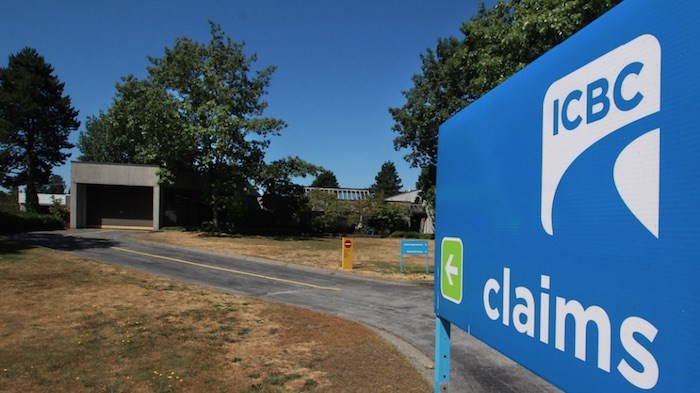 ICBC. BIV file photo.
ICBC. BIV file photo.
Some part-time B.C. residents are in for sticker shock when they go to renew their vehicle insurance, thanks to new regulations brought into force in September.
Under the new rules, aimed at helping Insurance Corp. of B.C. to improve its finances, part-time B.C. residents who hold a driver’s licence from another jurisdiction will no longer qualify for driver-experience discounts.
That means people who split their time between B.C. and other provinces, states or countries and maintain a vehicle with B.C. plates could see their vehicle-insurance rates more than double.
Jim MacLeod was handed a bill for $2,614 when he renewed the insurance on the Subaru he keeps at his home on Salt Spring Island. Last year, that same insurance policy was $1,008.
MacLeod, who splits his time between his home in Hamilton, Ont., and the Salt Spring home he bought in 2007, said the provincial government is taking a run at those not considered B.C. residents.
“This is simply another whack at the people who did not take the hint with the speculation tax that the Horgan government does not want anyone in B.C. who is not a full-time resident,” he said. “I was absolutely horrified by this [increase], and even the $1,008 I paid last year was an increase of about 20 per cent.”
MacLeod dodged the speculation tax when, after criticism that the tax unfairly hit B.C. residents, Finance Minister Carole James announced it would be changed to exclude areas such as the Gulf Islands and Parksville-Qualicum.
But he couldn’t dodge the insurance changes. At 72, MacLeod, who has been driving since 1963, was told he would no longer be eligible to claim an experienced driver discount and would face a hike.
He paid his insurance bill, but increased his deductible to $2,500, from $500, which dropped his bill to $2,312.
“But now I am assuming $2,000 in liability I didn’t have last year,” he said, adding he is now paying more for insurance for a used Subaru than he does for his Corvette convertible back in Ontario, despite a clean driving record and no tickets.
Despite repeated requests, no one from ICBC or the Attorney General’s Ministry was made available to comment.
The changes stem from ICBC’s switch from a vehicle-based insurance model to a driver-based one. Without holding a B.C. driver’s licence, non-residents used to be able to benefit from discounts based on how long they had insured their vehicles in B.C., but ICBC is now using a driver-based model that relies on driving experience in B.C.
In hopes of having ICBC review the situation, MacLeod signed a disclosure agreement waiving his privacy rights, which allowed ICBC to comment on his policy rate.
But it’s unclear why an experienced driver from another jurisdiction in Canada wouldn’t be able to provide a provincial record or abstract to be able to claim an experience discount, or how many drivers could be affected by the change.
Drivers such as MacLeod have been advised, instead, to purchase a storage policy for when the vehicle isn’t in use and purchase short-term policies for when it is.
MacLeod said he and his wife spend about three months a year in B.C., and intend to continue to do so. “The smart thing is to sell the place and go and buy a place in Muskoka I guess, but I don’t want to do that.
“We like it here. We have friends here and are part of a community.”


